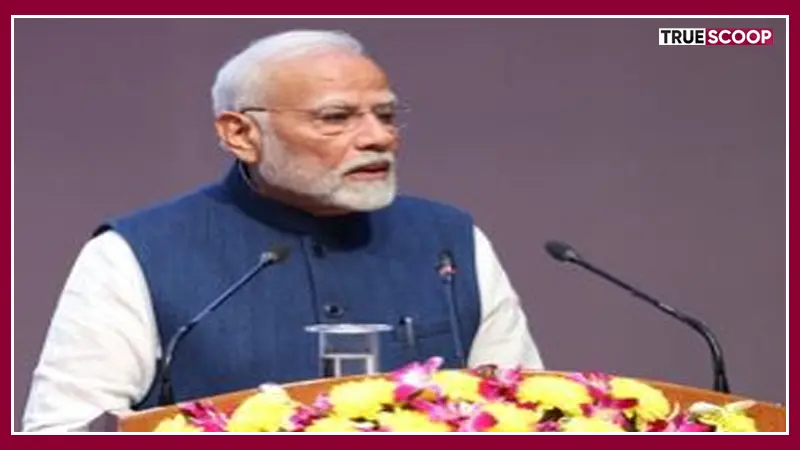Taking part in the debate on the Constitution in the Lok Sabha on Saturday, Prime Minister Narendra Modi defended his government's constitutional amendments, asserting that they were not intended to consolidate power but to correct past mistakes and strengthen the unity and progress of the country.
He accused the Nehru-Gandhi family of amending the Constitution to serve their own interests, claiming that their amendments were self-serving, unlike those made by his government.
“We amended the Constitution to rectify past errors, enhance national unity, and address longstanding issues such as the neglect of OBCs,” said PM Modi.
"Hamne saare sanshodhan Sanvidhan ki bhawana ke prati kiye ("We have made all the amendments in accordance with the spirit of the Constitution),” he said.
He further stated that the constitutional amendments his government had made to empower women, address the concerns of OBCs, and ensure the welfare of marginalised communities.
PM Modi credited the exit of Congress from power as a turning point for the Constitution and democracy, claiming that after their departure, his government was able to bring about the necessary amendments for the country's development.
He lauded his government's efforts to dismantle barriers such as Article 370, which had prevented the full implementation of the Constitution in Jammu and Kashmir. "Babasaheb's Constitution didn't reach J&K due to Article 370. We demolished this wall, and the Supreme Court supported our decision," he said.
PM Modi also spoke about the amendment to grant Constitutional recognition to the OBC Commission, fulfilling a demand that had been ignored for decades.
He also noted that the government's introduction of a 10 per cent reservation for economically weaker people in the General Category was widely accepted and passed smoothly in Parliament.
Reflecting on the passage of the Nari Shakti Vandan Adhiniyam bill, PM Modi flayed the opposition for obstructing the women's reservation bill for 40 years, recalling an incident when a member of the opposition tore up the papers during a session.
“We didn’t do this for power, we did it for the 'punya' (virtue),” he remarked.
PM Modi also defended the Citizenship Amendment Act (CAA), stating that it was in line with Mahatma Gandhi's vision, who had once said that India should protect religious minorities in distress from neighbouring countries.
“We brought CAA to address the suffering of persecuted minorities,” PM Modi affirmed, further stating that his government’s legislative initiatives were in line with the Constitution. The CAA gives citizenship to persecuted religious minorities from Pakistan, Bangladesh and Afghanistan.
On the issue of the Uniform Civil Code (UCC), PM Modi explained that the Constituent Assembly had decided after extensive discussions that the government should work towards implementing the UCC.
He pointed to B.R. Ambedkar’s support for ending religion-based personal laws, noting that the Supreme Court had also called for the introduction of a UCC. He said that his government is working towards a Secular Civil Code.
PM Modi reflected on his government's commitment to constitutional integrity, recalling how the Vajpayee-led NDA government in 1998 respected the Constitution by choosing to resign after losing a vote by just one.
He contrasted this with Congress, claiming that the opposition had resorted to unconstitutional tactics to cling to power, including bribing MPs in the 1990s. “Atal ji also chose to step down after 13 days, without considering any unconstitutional ways to save his government in 1996,” he recalled.
"During the Vajpayee government, we respected the Constitution and never took unconstitutional routes," PM Modi stated. "We never chose unconstitutional ways. This is our record, unlike others who used every unconstitutional method to stay in power."
--IANS
